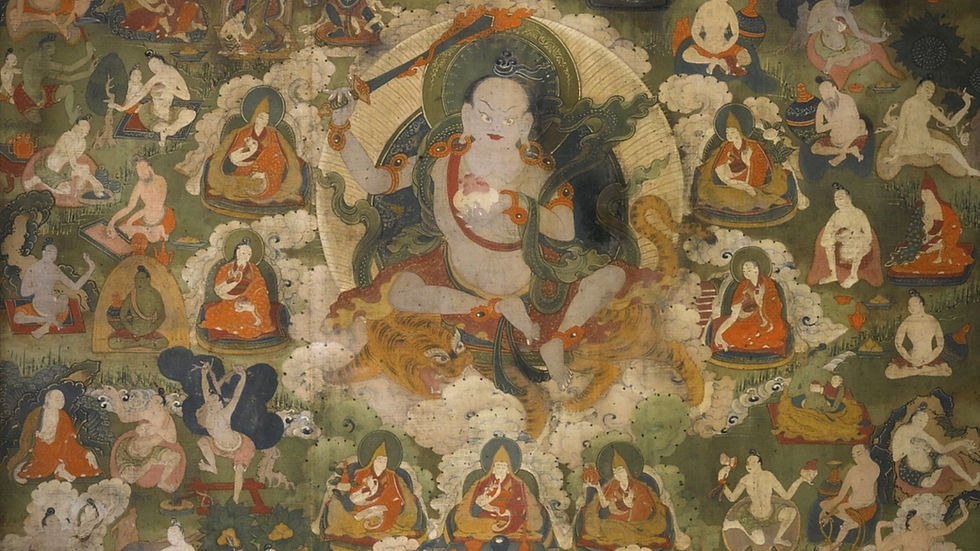Preserving worlds through words.
Our Section Themes
Six sections, six themes, and six approaches to understanding Resistance.
Section 01
The Transcendent:

Philosophizing on death, the divine, and the tantric.
Section 02
A Utopic Order of Things:

An exploration of utopic appearances and their effects on persons, personhoods, and places.
Section 03
Against the Order of Things:

All of pedagogy pushing new limits to rearrange the order of things.
Section 04
Between the Margins:

Views from the inside of marginalised persons, their experiences, and their orientation to an impersonal world.
Section 05
Revisiting Violence:

An exploration of violence from the canonical thinkers with novel perspectives.
Section 06
Rethinking the Collective:

The purpose and priority of the social world, its inhabitants, and collective responsibility.


The Philosophy
of Resistance
A internationally curated series of fifteen thinkers across philosophy, literature, historiography, and sociology.

Resistance as a response to structure has been—and will be—an answer as long as structural systems, power dynamics, social frameworks, and institutional frameworks govern bodies. This collection is a meeting place for academia to reach out and the public to reach toward.
a response to structure
& oppressive frameworks

RESISTANCE
Introduction & Format
Resistance as applied thought and a meta-ethic creates a gap that harms both the public and academia. Because academia provides privileged access to information, the public is not always fortunate to engage deeply with it due to the oversaturation of information. We end up with an approach to knowledge that misses each other. We lose the possibility of mutual recognition and shared insight. This call is an approach for academia to reach out, and the public to reach toward.
Scholars like Mbembe hint at the lack of possible resistance from the living dead in his notion of Necropolitics. Giorgio Agamben discusses the impossibilities of resistance with states of bare life in Homo Sacer. Baudrillard notes its relation to power, but power as a simulacrum of itself, always seeking to end what points at its absence. Camu attempts to encompass it but misses a radical view of resistance as he believes no situation justifies violence as legitimate in itself. With oppressive frameworks, we see how suffering changes the approach to the ways we think about resistance.
Papers should be 3000-7000 words. Longer papers are accepted on a case-by-case basis based on merit of scholarship. Please use 12-point font. British English ending of words -ise (organize, realise, recongnise, theorise, criticise) should be used over -ize. Judgment should be ‘judgement’ with an ‘e’ unless referring to legal judgment. The full form of verbs, e.g. I cannot (not I can't), we do not (not we don't) etc. Single quotations should replace double quotations (should be ‘this’, instead of “this”) and should be inside of punctuation, unless quoting an entire sentence (with this, ‘this would be correct’. With this, ‘this would be incorrect.’)
Please submit docx file and a PDF for review. Manuscripts chosen for publication must eventually conform to The Chicago Manual of Style, seventeenth edition. Include a SEPARATE LIST OF WORKS CITED at the end of the paper, using FULL AUTHOR NAMES (not first initials).
-Ethnographic approaches to resistance
-Historical examinations of resistance
-The philosophy of resistance
-Resistance and suffering
-The metaphysics of resistance
-The ethics of resistance
-Power and resistance
-Ableism and resistance
-Ecological resistance
-Decolonial frameworks of resistance (including critical gender, feminist, trans, and queer studies)
-The black radical tradition and resistance
-Migration and resistance
-Race and resistance
-Religion and resistance.


*This call is closed* All thinkers are encouraged to submit to allow for a wider examination of the theme.
All submissions will undergo a blind peer review conducted by our editorial board. Please submit a short bio, no more than 150 words. Bios are used for printing of selected articles and not for review. Please submit an abstract of 300-500 words to awatum@ofeverything.co by July 31st.
Authors will be notified of acceptance by August 15th with first drafts of essays due by September 1st. The editorial team will return edits by October 1st. January 1 is the last day for submission of edits. Final revisions will be submitted through Duosuma (an online submission platform linked to Duotrope).
The edited volume will be released in the summer of 2026, printed and distributed through Awatum Press. UK editions will be distributed through Lightning Source's traditional press distribution (no POD). Contributors will receive an author copy of the book and acknowledgement in press materials.















